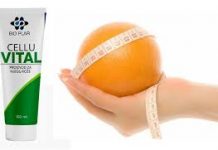Regenerative supplements, as the name suggests, help the body recover from intense exercise. Every workout brings benefits and some harm to the body. For this reason, post-workout reconstruction is so important, which can be supported, for example, by appropriate supplementation.
Contents:
- Effect of training on the organism – post-training regeneration
- Muscle regeneration after training – supplements
- Additions for regeneration – what is good to remember?
Effect of training on the organism – post-training regeneration
Physical exertion is associated with increased energy consumption by the body. The skeletal muscles, circulatory and respiratory systems work the most. Depending on the intensity of the training, the consumption of energy substrates (e.g. glucose) is different – the highest can be observed during training with an intensity above 60-70% of the maximum load (VO2max). Slightly lower training intensity (or longer training doses) are associated with a greater proportion of oxygen changes (e.g. during fat burning).
Due to the high consumption of body reserves, a correctly chosen diet is very important, which will affect the regeneration of energy reserves, for example by glycogen resynthesis and muscle reconstruction. Post-workout regeneration plays the most important role in intensive training preparations, for example before competitions or for people who do sports every day or even several times a day, regardless of the type of training performed.
Diet is the main factor affecting post-workout recovery. In this case, special attention is paid to carbohydrates. Depending on the number of training sessions, their intensity and the training person’s parameters, the distribution of carbohydrate meals during the day should be properly adjusted.
Sometimes an athlete takes carbohydrate supplements in the form of nutrients during training. Of course, a dietitian is responsible for determining the appropriate method of pre-workout nutrition. In addition to carbohydrates, it is also important to get the right amount of protein and fat. Intense training requires the athlete to use recovery supplements that can improve post-workout recovery. Which muscle recovery supplements will be the best choice?
Muscle regeneration after training – supplements
Muscle supplements help them recover in several ways. They enable the resynthesis of energy reserves, which should be at the highest possible level before the next training unit. They also have a direct effect on tired muscles and the athlete’s entire body. After exercise, it is also worth regenerating the nervous system, which gets into the bone quite well during intense training.
 Below you will find a list of a few selected types of supplements that athletes use after training.
Below you will find a list of a few selected types of supplements that athletes use after training.
1. Carbohydrate, protein and carbohydrate-protein supplements
They are designed to supplement macronutrients in a quick and easy way. They can be used during exercise (e.g. carbohydrate supplements) and before and after training. Their advantage is that they are a concentrated source of energy and necessary ingredients, which in the case of intensively training athletes can be difficult to provide with a traditional diet.
2. Additions containing vitamins, minerals
During intensive training, it is also necessary to supplement with vitamins (e.g. vitamin B6) and minerals. In this case, electrolytes are very important, e.g. magnesium (e.g. Magnesium-B6 ultra fast / Olimp chela mzb), sodium, potassium and calcium. They correspond, among other things, to nerve conduction and muscle spasms – deficiencies can result in painful leg cramps, for example. Most vitamins and minerals can be provided through a properly balanced diet, but after all, after consulting a doctor or nutritionist, you can consider supplementation. It is also worth introducing isotonic drinks as hydration and nutrition after training.




